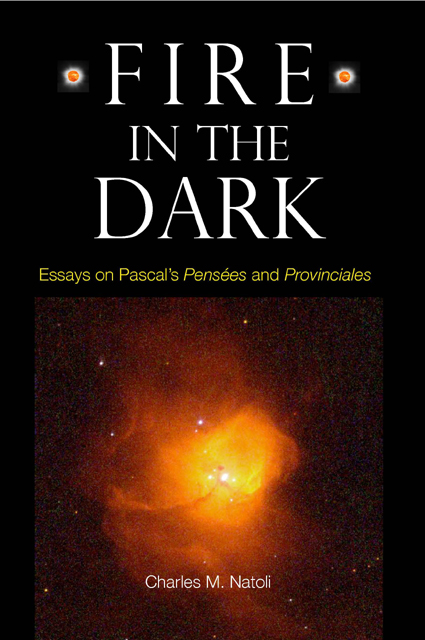5 - Proof in the Pensées: Reason as Rhetoric, Rhetoric as Reason
Published online by Cambridge University Press: 17 March 2023
Summary
ἀλλὰ τò φαιυόμευoυ πάυτη σθέυει oὑ̂περ ἃυ ἔλθῃ.
But the apparent is omnipotent wherever it goes.
Timon of Phlius, Indalmoi (Appearances), in Diogenes Laertius, “Life of Pyrrho,” 105Harum sententiarum [quae vera sit deus aliqui viderit; quae veri simillima magna quaestio.]
Which of these opinions [is true, some god will have seen; even which is most like the truth is a difficult question.]
Fr.S 111 [Cicero, Disp. Tusc. 1.11]When Pascal died in 1662, he left behind a large number of written fragments of various lengths, texts whose proper arrangement and interpretation have mightily exercised editors and commentators ever since. Presented by editors under the title Pensées, the great majority of them contain a variety of themes that, directly or indirectly, contribute to a projected reasoned defense of the Christian religion—an Apology, though the word itself does not appear. In these fragments, we find many arguments and (at least one non-argument) that are explicitly offered as proofs (preuves).
But what notion of what constitutes a proof could underlie the very various, and sometimes eccentric, individual proofs that we find in the Pensées?
There are, I think, reasons for posing this question aside from a pedantic urge to ask any question that can be asked.
First of all, there is the matter of trying to clarify the historical record. Pascal’s explicit comments on proof in the Lettre au P. Noël and in De l’esprit géométrique have, I think, given rise to a common, though mistaken, view that for him, “il n’est de bonne preuve que géométrique” (the only good proof is a geometrical proof).
Second, many of the Pensées’ proofs for the Christian faith are far from fulfilling the conditions for proofs laid down in the works just mentioned. Is it then with or without a grain of salt that we should take these proofs for Christianity?
- Type
- Chapter
- Information
- Fire in the DarkEssays on Pascal's <i>Pensées and Provinciales</i>, pp. 69 - 95Publisher: Boydell & BrewerPrint publication year: 2005

